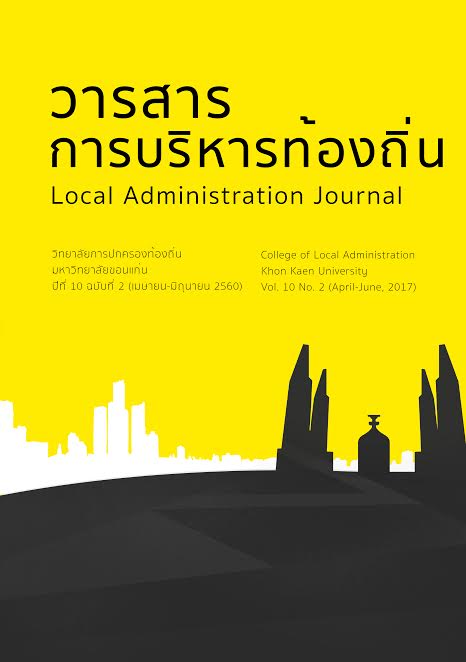ปัจจัยที่มีผลต่อสัมพันธภาพในครอบครัวไทย
Keywords:
Thai family, Relationship, Family structure, ครอบครัวไทย, สัมพันธภาพ, โครงสร้างครอบครัวAbstract
การศึกษานี้มีวัตถุประสงค์เพื่อศึกษาปัจจัยที่มีความสัมพันธ์กับสัมพันธภาพในครอบครัวไทย เป็นการศึกษาแบบภาคตัดขวาง (Cross-sectional study) การสุ่มตัวอย่างแบบเจาะจง (Purposive sampling) ใน 5 ภาค คือ ภาคตะวันออกเฉียงเหนือ ภาคเหนือ ภาคตะวันออก ภาคใต้ และภาคกลาง กลุ่มตัวอย่างคือหัวหน้าครอบครัวหรือผู้แทน จำนวน 2,030 คน โดยการใช้แบบสอบถาม วิเคราะห์ปัจจัยที่มีความสัมพันธ์ต่อสัมพันธภาพในครอบครัวไทย โดยใช้ Chi-square test และ Logistic Regression) ผลการศึกษา พบว่า รูปแบบครอบครัวส่วนใหญ่เป็นครอบครัวเดี่ยว (46.2%) จำนวนสมาชิกของครอบครัว ที่อยู่อาศัยในบ้าน ณ ปัจจุบัน โดยเฉลี่ย 4 คน หัวหน้าครอบครัวส่วนใหญ่จบการศึกษาระดับประถมศึกษาค่ามัธยฐานของรายได้ครอบครัวเฉลี่ยต่อเดือนเป็นเงิน 10,000 บาท ปัจจัยที่มีความสัมพันธ์กับสัมพันธภาพในครอบครัวคนไทยอย่างมีนัยสำคัญทางสถิติ ได้แก่ โครงสร้างครอบครัว การศึกษาของหัวหน้าครอบครัว อาชีพหลักที่สร้างรายได้เลี้ยงครอบครัว รายได้ของครอบครัว เงินออมของครอบครัวและสถานภาพการครอบครองที่อยู่อาศัยโครงสร้างของครอบครัวเดี่ยวซึ่งมีพ่อ แม่ และลูก มีแนวโน้มว่าครอบครัวจะมีสัมพันธภาพที่ดีกว่าโครงสร้างครอบครัวแบบอื่น ๆ เป็น 1.9 เท่า เมื่อควบคุมตัวแปรภาค การศึกษาของหัวหน้าครอบครัว และตัวแปรด้านเศรษฐกิจของครอบครัว ข้อเสนอแนะจากผลการศึกษานี้ ควรสนับสนุนให้เครือข่ายชุมชนมีส่วนร่วมในด้านการเตรียมความพร้อมด้านเศรษฐกิจ ก่อนสร้างครอบครัวใหม่
Factors Affecting Relationships in Thai Families
This study aimed to examine factors affecting relationships in Thai families. It employed a cross-sectional study approach and purposive sampling techniques. The 2,030 samples were selected from 5 different regions of Thailand: northeastern, northern, eastern, southern, and central. A survey questionnaire was administered to collect data from household heads. Chi-square and logistic regression were employed to analyzed the data.
Results indicated that most of the surveyed families (46.2%) were nuclear families, the average number of family members was 4 persons, most of the household heads’ educational level was primary education, and the mean of household income was 10,000THB. Results also showed that variables of family structure, household head’s educational level, occupation generating the major source of family income, family income, savings, and property ownership were key factors affecting relationships in Thai families. Nuclear family, in which there were a pair of adults and their children, was likely to develop better relationships 1.9 times greater than other types of family, when controlling for region, household head’s level of education, and family finance.
The findings suggested that participation of community network in preparedness of family finance should be promoted before starting a new family.
Downloads
Published
How to Cite
Issue
Section
License
The copyright of all articles published in the Local Administration Journalis owned by the College of Local Administration, Khon Kaen University.



